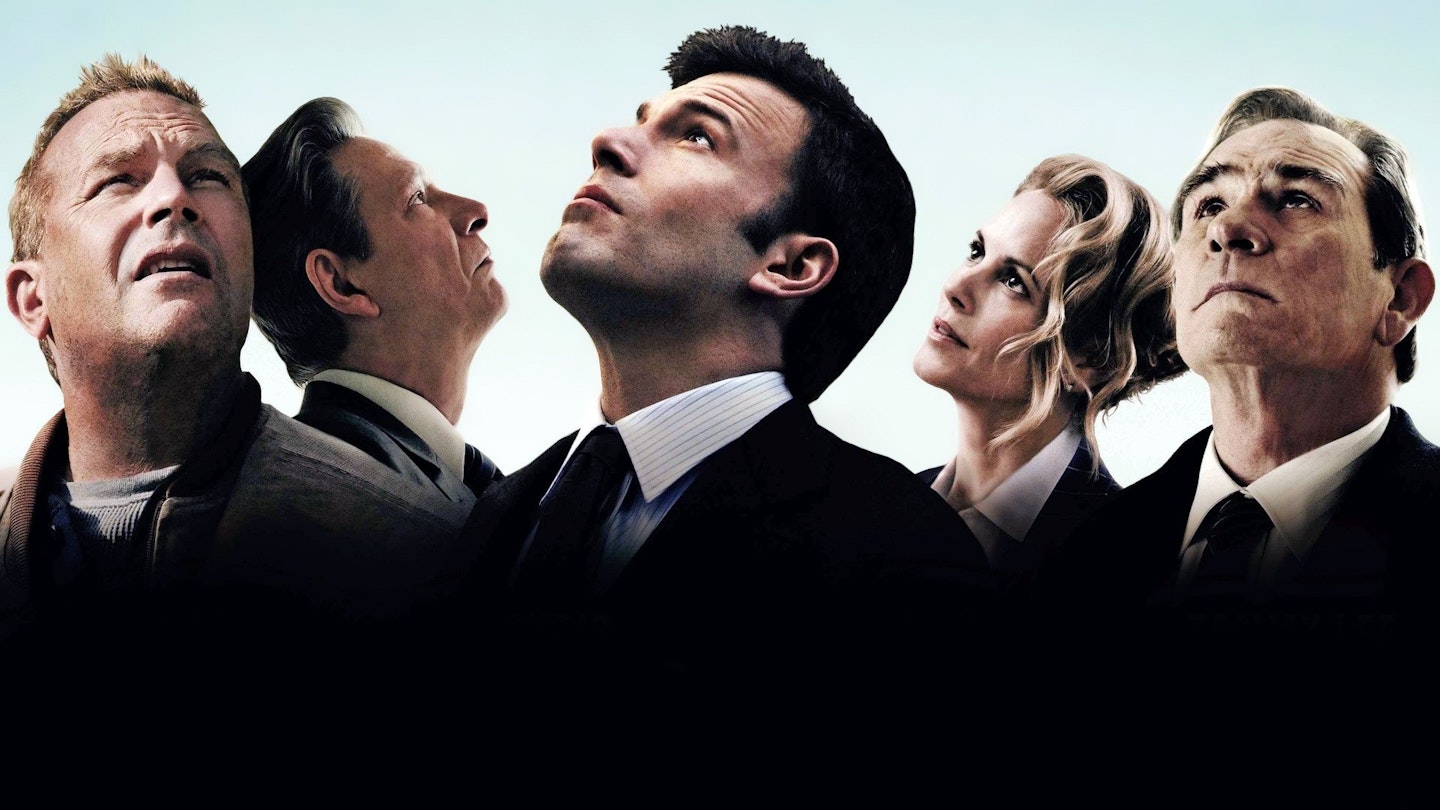Writer/director John Bells made his name in television as a writer-producer, where he was a key player in several big US shows including China Beach, ER and a little series called The West Wing. He’s also produced a wide variety of films, but this is his first real crack behind the camera on the big screen. Ripped from the economic headlines and drawing on a similar surge of frustration as Michael Moore’s Capitalism: A Love Story, Wells attempts to get to the root of the financial crisis through the eyes of fictional characters affected the most by its impact. But, just as Moore’s latest failed to quite get its message across, Wells’ stab gets lost wallowing in predictable story beats and stock situations.
Sure, there are plenty of veiled barbs about the rich getting richer and the poor getting poorer, but the focus is mostly on Ben Affleck, Tommy Lee Jones and Chris Cooper’s struggles to redefine themselves as men. Bobby Walker (Affleck) is the arrogant blowhard brought down to Earth by worries about providing for his family, yet his pride means he initially resists overtures from his house-building brother-in-law to hammer a few nails in. Cooper is the older executive who realises the world has long since moved on without him, shown most painfully in a scene where his extensive CV is ripped to shreds for focusing on “old stuff” and he’s advised to crack open a bottle of dye to hide the grey. Instead, he hits the scotch. And Jones is the real old hand, who helped start the company from the ground floor, and truly feels the sting of betrayal when he’s handed his P45.
All three do good work, but they can only stretch the thin, predictable material so far, and their families are the usual blend of supportive saints or rich, bored ice queens. Still, there are good supporting turns (some fine, subtle work from Kevin Costner and light relief courtesy of Eamonn Walker), while Wells digs out a few scenes of real emotion and some salient points, but the message is delivered with all the subtlety of Costner’s sledgehammer knocking down drywall.
